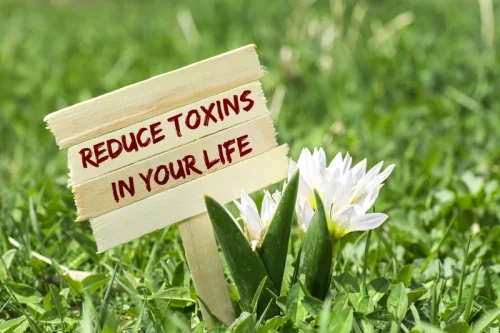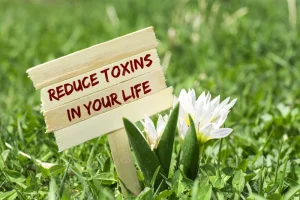
Try to keep your high standards in check by focusing on the effort you put into a project and not personalizing failure when you make a mistake. You can also take a few seconds every hour to look out a window, listen to a favorite song, or eat a delicious snack. Remember to leave all work-related stuff aside when you take these breaks. It can be a cup of tea, your favorite comedy, a long walk with a =https://ecosoberhouse.com/ loved one, a soothing bath, or anything else that brings you a bit of joy. Try to mix them up so they have a bit of “newness” to them and you’ll enjoy them even more.

Support
Purposefully slowing down and being conscious of your surroundings can keep you relaxed throughout the week. Meditation, deep breathing exercises, and mindfulness calm stress and anxiety. When you’ve experienced worry and chronic stress for an extended period, what is alcoholism your mind may tend to jump to conclusions and read into every situation with a negative lens. By Elizabeth Scott, PhDElizabeth Scott, PhD is an author, workshop leader, educator, and award-winning blogger on stress management, positive psychology, relationships, and emotional wellbeing. Think about those little treats in life that put a smile on your face, and get more of them into your day. These little happiness-boosters, known as “pleasures” by psychologists, can lift your mood in a measurable way and reduce stress in the process.

Make Your Non-Work Time Count
Even though the symptoms must be linked to a traumatic event, this linking does not imply causality or etiology. Additional factor analytic research has demonstrated substantial overlap of PTSD symptoms with symptoms of other disorders (especially depressive and anxiety disorders), inviting criticism of the validity of PTSD as a distinct disorder 15. This factor analytic research has been limited, however, by use of self-report scales not anchoring symptoms to the traumatic event as defined by the diagnostic criteria for PTSD 4.
Homegrown Weed and Zelda: Redditors Who Embrace ‘Simple Living’ Share How They Unwind After Work

When your home is your office, it becomes too easy to let work creep into dinner time, or answer that last email from bed at night. Sometimes, it’s easy to underestimate how much stress affects you. If you start becoming aware of how you feel, you may find yourself emotionally exhausted and pessimistic by the end of some days. Working on your time management skills, taking time to recharge, becoming aware of Ways to Destress After Work how events affect you, and relying on a support network may help you manage job-related stress. There’s a reason why thousands of people have become obsessed with watching these oddly satisfying ASMR videos like soap and kinetic sand cutting.
- The fifth edition (DSM-5) of the criteria required seven years of planning, six years of actual work group activity, and a year to finalize the materials for publication and obtain the approval of the APA Assembly and Board of Trustees.
- Engaging in fun activities with loved ones can provide a much-needed break from work-related worries while strengthening social bonds.
- Creating clear boundaries between work and home life is essential to help you avoid potential job-related stress.
- Cooking helps you tap into your creative side and forces you to focus on the task at hand, instead of on whatever is stressing you out.
According to science, running keeps your brain young, fights off anxiety, and boosts your mood. If you aren’t a runner like me, taking a brisk walk, biking, or dancing will do the job just fine (and it gives you a chance to finish the end of that true crime podcast or Spotify daylist). This means creating enough balance in your life to include leisure time and hobbies. It means cultivating healthy relationships to help you feel fulfilled and take your mind off of stress. It means creating healthy habits to relieve stress, as well as setting goals that excite you and going for them.
Create a Soothing Home Environment for Yourself

Medical incidents involving natural causes, such as a heart attack, no longer qualify (with the stated exception of life-threatening hemorrhage in one’s child, as described in the text accompanying the criteria). This seemingly minor revision of the definition of medically based trauma appears to have had a substantial influence on PTSD findings. Complementary and integrative health specialists, mental health professionals and other healthcare professionals can teach many relaxation techniques. We’ve done some research and found 12 activities that are scientifically proven to boost your mood, help you de-stress, or simply distract you from what’s going on at the office. Take a deep breath, leave the stresses of the workday behind, and discover how to decompress, release tension, and reset your mind in a way that works best for you.
- These types of videos are linked to mood management theory, and basically implicitly make us feel more calm.
- Perhaps the most substantial conceptual change in the DSM-5 for PTSD was the removal of the disorder from the anxiety disorders category.
- That’s high praise given what’s competing for our attention these days.
- And these options can help with long-term stress or stress related to many health problems, such as heart disease and pain.
- These actions may seem to help in the moment, but actually may add to stress in the long run.
- Just as we need boundaries during our workday, we need clear rituals and methods for drawing the line between “work” and “rest” once the day is done.
- If one relaxation technique doesn’t work for you, try another one.
- So, next time you’re feeling crummy (ha, ha) after work, pull out your mixing bowl and whip up something delicious.
- This means prioritizing sleep, setting aside time for fun, and ensuring you eat throughout the day.
- Most of us appreciate the feeling of turning off the “work” part of our brain and shifting into fun mode.
While sustainable job performance requires us to thrive at work, only 32% of employees across the globe say they’re thriving. Those who feel tense or stressed out during the workday are more than three times as likely to seek employment elsewhere. If left unchecked, it can have severe, negative impacts on your professional and personal life, including fatigue, headaches, stomachaches, muscle tension, and heart attacks. It can even cause you to pick fights with the people closest to you. Instead of allowing stress to control your health and your life, try one of these 11 ways to de-stress after work.
